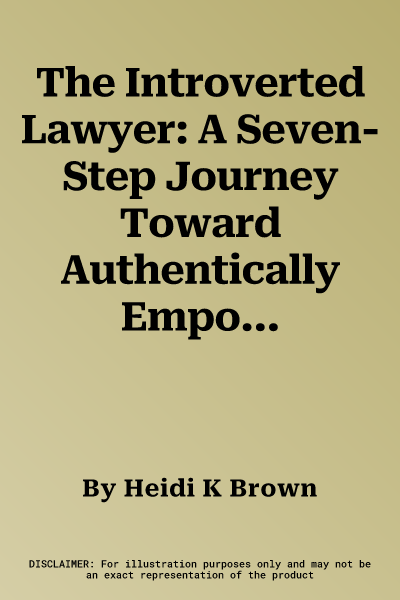A stereotype bias exists in law school and legal practice favoring the
garrulous extrovert. While loquacious law students, professors, lawyers,
and judges thrive in a world dominated by the Socratic Method and
rapid-fire oral discourse, quiet thinkers and writers can become
sidelined. Introverted, shy, or socially anxious law students and
lawyers often question their place in the legal arena, though research
reveals they offer much-needed gifts to the profession, including active
listening, empathy, contemplative analysis, and impactful writing. As
legal education and law practice adjust to economic shifts and changing
client mindsets, this is a prime opportunity for the legal community to
make room for subtler voices. The Introverted Lawyer invites that
dialogue into the legal profession.
This book explains the differences among introversion, shyness, and
social anxiety and how each manifests in the legal context; describes
how the extrovert bias in law school and practice detrimentally can
impact quiet individuals, fueling enhanced anxiety in a vocation already
fraught with mental health issues; explores how quiet law students and
lawyers offer greatly needed proficiencies to the legal profession; and
finally, presents a seven-step process to help introverted, shy, and
socially anxious individuals amplify their authentic lawyer voices,
capitalize on their natural strengths, and diminish unwarranted stress.
The Introverted Lawyer provides practical, tangible steps for individual
growth, as well as a sound platform to enable caring professors, law
office mentors, and bar association representatives to educate
themselves, their students, and developing lawyers about this important
and often overlooked issue.
The first half of this book:
(1) Explains the differences among introversion, shyness, and social
anxiety and how each can manifest in the legal context.
(2) Explores the impact on quiet individuals of the push toward
extroversion in law school and law practice.
(3) Highlights greatly valued proficiencies that quiet individuals
offer the legal profession through nurturing instead of repressing
innate strengths.
Further, to help quiet law students and lawyers become authentically
powerful advocates, the second half of this book outlines a practical
seven-step process to empower introverted, shy, and socially anxious
individuals to amplify their voices without compromising their quiet
assets. With increased self-awareness and a holistic approach, and
buoyed by collaboratively compassionate and motivating professors and
law office mentors, introverted, shy, and socially anxious law students
and lawyers will transform the legal profession.

